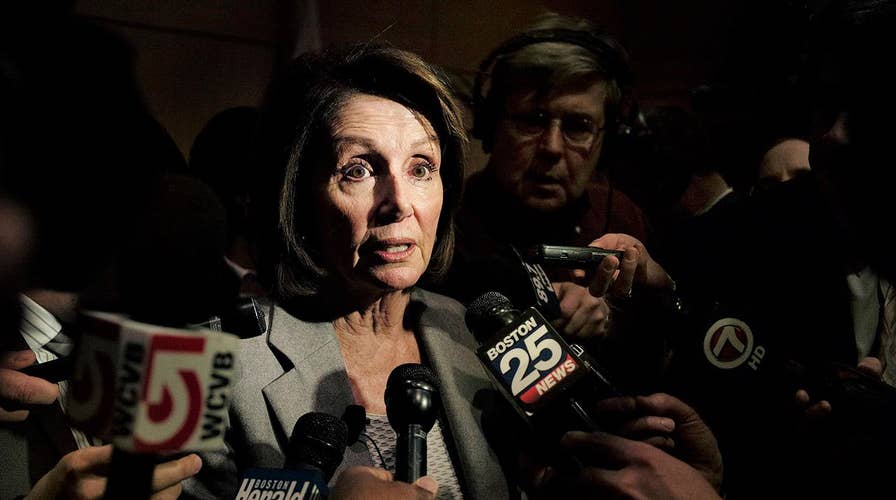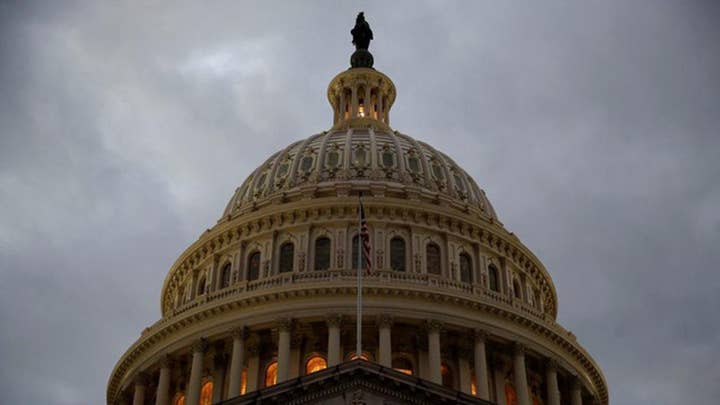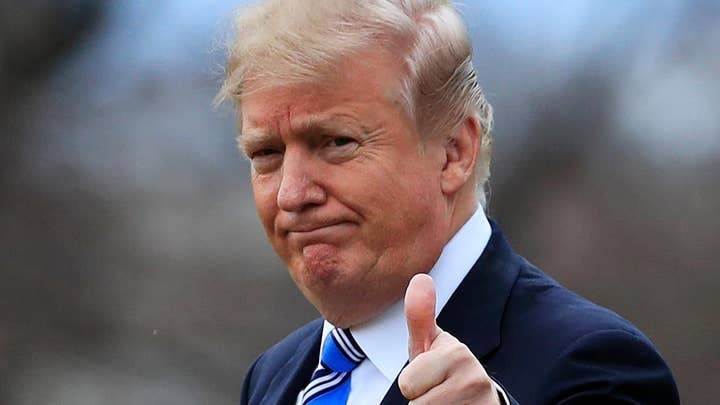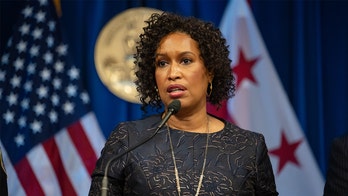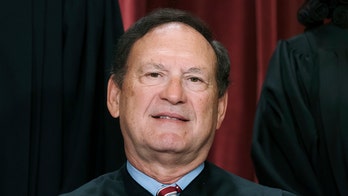Can GOP use Pelosi's crumbs comments on the campaign trail?
Ron Meyer, Evangeline Gomez debate on 'Fox & Friends First.'
Washington Democrats are taking heat from some of their biggest financial supporters over a midterm-election strategy still focused on bashing President Trump and the Republican tax cut plan – as recent polls suggest the party's candidates could be losing their edge.
Congressional Democrats, just a couple months ago, thought they had a winning plan for taking control of the chamber by arguing the tax cuts were a gift to corporate supporters at the expense of the American worker. Within hours of the bill's passage, Democrats returned to their districts for the holidays, ready to trumpet the Democratic Congressional Campaign Committee’s message of “House Republicans Sign Away Their Seats.”
However, the extra money in employee paychecks since early January, and bonuses related to the cuts, apparently are winning over voters.
Those outside the Capitol Hill bubble are taking note, and urging Democrats to reconsider their message.
“If we spend all of our cycle running against the tax bill, it’s probably going to be a mistake,” Julie Greene, a former Democratic National Committee aide who now leads midterm campaign efforts for the AFL-CIO, recently said.
The most recent RealClearPolitics average of “generic” ballot polls -- asking voters which party they prefer in congressional races -- shows Democrats with a roughly 7-percentage-point lead over Republicans, compared with 13 points the day after Congress approved the tax law.
And a new Morning Consult/Politico poll showed Republicans leading by 1 percentage point, after trailing for three months.
Trump also has taken note of the polls, as Democrats try to win a total two-dozen seats to retake the House majority they lost in 2010.
“Republicans are now leading the Generic Poll, perhaps because of the popular Tax Cuts which the Dems want to take away. Actually, they want to raise you taxes, substantially,” the president tweeted Tuesday.
Gallup, meanwhile, announced that Americans’ satisfaction with the direction of the country was its highest since before Trump became president in November 2016, saying the impact of the cuts -- as seen on employees’ “first pay stubs” -- was a potential factor.
“This is a terrible idea for Democrats to run on,” Rory McShane, a Republican political media consultant, said Tuesday. “The tax plan is benefitting most Americans. Everybody knew it was going to be like an extra 50 bucks in each paycheck. But that pays a cellphone bill. That just shows you the world in which Democratic leadership doesn’t live.”
Republicans already are trying to tie 2018 Democratic candidates to House Minority Leader Nancy Pelosi’s recent comment that employee bonuses as a result of the tax cuts amount to “crumbs.”
McShane speculated that by Election Day, the cuts likely won’t impact the well-paid, well-educated “suburban” swing voters that pollsters frequently say decide elections. “But they will likely make Trump’s base happy that they put him in office and make them want to vote the same way in 2018,” he said.
Meanwhile, Priorities USA, the major Democratic super PAC that backed Barack Obama and Hillary Clinton’s presidential campaigns, issued a memo last week raising concerns about whether the party has become too focused -- or perhaps too refocused -- on reacting to Trump, according to Politico.
Ohio Democratic Rep. Tim Ryan told Politico the memo was "spot on."
"There are some real issues that we need to pound -- and I mean pound relentlessly -- if we are going to win the districts we need to win in," said Ryan, who has been critiical of House leadership.
The offices for House Democratic leaders and the DCCC, whose mission is to get the chamber's Democratic candidates elected and reelected, have not responded to requests for comment for this report.
Washington Democrats acknowledge that their failures in 2016 to keep the White House or retake the House were in large part the result of a campaign platform relying too much on opposing Trump and failing to connect with Middle America voters.
The party last year announced its “Better Deal” platform, an effort to create more better-paying, full-time jobs for Americans. This past fall, House Democratic leaders announced their related “Jobs for America Task Force,” though the idea of attacking Trump still appeared to be on their minds.
“We all know our agenda just can’t be against Donald Trump, as alluring as that may be,”’ said New York Rep. Joe Crowley, chairman of the House Democratic Caucus. “We will create a jobs package that our members can advocate for in this Congress and beyond.”
The Associated Press contributed to this report.
